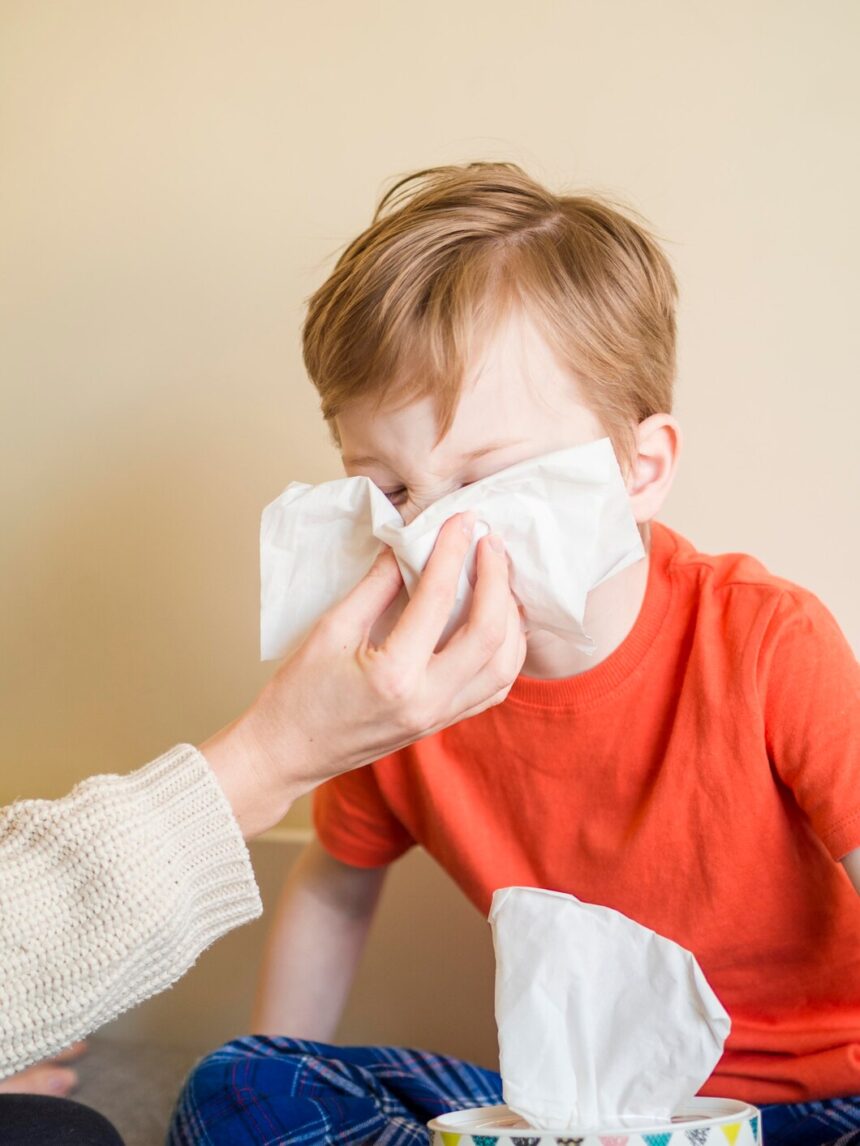Measles, a highly contagious viral infection, poses a significant health threat, particularly to children who have not been vaccinated. While measles was once considered a rare disease in many parts of the world, recent outbreaks have highlighted the importance of early detection and prevention. Recognizing the early signs and symptoms of measles in children is crucial for timely diagnosis and appropriate medical intervention. Here’s what parents and caregivers need to know:
1. Fever
One of the earliest signs of measles is the onset of a high fever, typically ranging from 101°F to 104°F (38.3°C to 40°C). The fever may appear several days before the characteristic rash and can persist for several days afterward.
2. Runny Nose
Measles often begins with symptoms similar to those of the common cold, including a runny or stuffy nose, sneezing, and nasal congestion. However, these symptoms may progress rapidly to more severe manifestations.
3. Cough
A dry, persistent cough is another common early symptom of measles in children. The cough may worsen over time and become more severe as the infection progresses.
4. Sore Throat
Children with measles may experience a sore throat or throat irritation, which can contribute to discomfort, difficulty swallowing, and hoarseness.
5. Conjunctivitis (Pink Eye)
Measles can cause inflammation of the conjunctiva, the thin membrane that lines the inner surface of the eyelids and covers the white part of the eye. Conjunctivitis typically presents as redness, irritation, and discharge from the eyes.
6. Sensitivity to Light
Some children with measles may develop photophobia, or sensitivity to light, which can cause discomfort and lead to squinting or avoidance of bright lights.
7. Koplik’s Spots
Koplik’s spots are small white spots that may appear inside the mouth, particularly on the inner cheeks, opposite the molars. These spots are a characteristic early sign of measles and typically precede the onset of the rash by one to two days.
8. Fatigue and Malaise
Children with measles often experience fatigue, lethargy, and a general feeling of malaise. They may appear unusually tired, weak, or irritable, and may have difficulty engaging in normal activities.
9. Loss of Appetite
Measles can cause a loss of appetite in affected children, leading to decreased food intake and potential weight loss. Children may refuse to eat or drink, or may experience nausea and vomiting.
10. Rash
The classic symptom of measles is a red, blotchy rash that typically appears three to five days after the onset of other symptoms. The rash typically begins on the face and spreads downward to the neck, trunk, and extremities. The rash may be accompanied by itching and can last for several days before fading.
When to Seek Medical Attention
Parents and caregivers should seek medical attention if they suspect their child has measles or if their child develops any of the following symptoms:
- Difficulty breathing
- Severe coughing
- High fever (above 104°F or 40°C)
- Dehydration (signs include dry mouth, decreased urine output, and sunken eyes)
- Seizures
- Altered mental status or confusion
Measles is a highly contagious viral infection that can cause serious complications, particularly in young children who have not been vaccinated. Recognizing the early signs and symptoms of measles is essential for timely diagnosis and appropriate medical care. Parents and caregivers should be vigilant for symptoms such as fever, cough, runny nose, sore throat, conjunctivitis, fatigue, loss of appetite, and the characteristic rash. If measles is suspected, it is important to contact a healthcare provider promptly to receive guidance on appropriate next steps, including isolation, supportive care, and vaccination. Vaccination remains the most effective way to prevent measles and protect children from this potentially dangerous infection.










